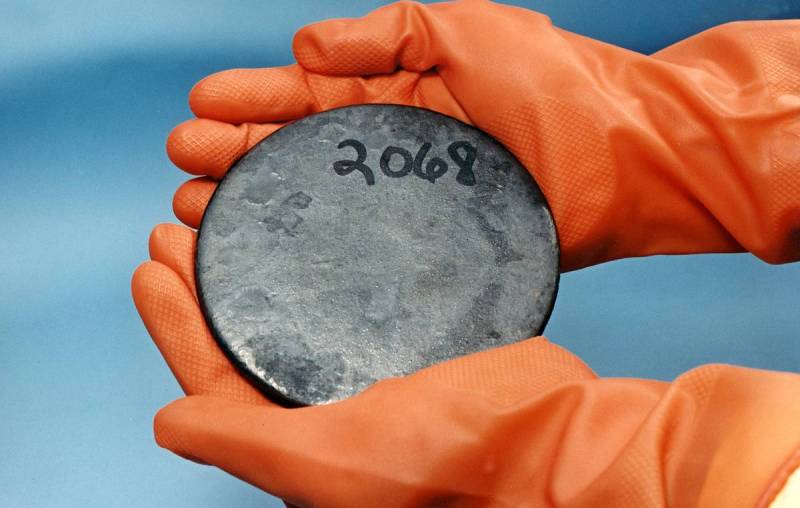Why it will not be easy for Americans to give up Russian uranium
The USA declares "atomic war" to Russia. A bill has been submitted to the US Congress, according to which the volume of purchases of uranium from our country should be reduced by almost half. Washington believes that Rosatom is undermining the national security of the "hegemon" with its cheap raw materials. Is it really?
Objectively, the United States and Russia are two great nuclear powers that have mastered both military and peaceful nuclear energy. After the end of the Cold War, the Megatons to Megawatts program or the HEU-LEU agreement was considered one of the symbols of the USSR's defeat. According to this international document from 1993, the Russian Federation has pledged to process at least 500 tons of highly enriched weapons-grade uranium into low-enriched uranium and supply it to American nuclear power plants. Over the twenty years of the program, 14 reprocessed nuclear fuel has been removed from our country. Despite the humiliation of this agreement for Russia and the obvious benefit for the United States, it ultimately played a cruel joke with the "hegemon" himself.
Over the years since the collapse of the Soviet Union, the United States has almost completely lost technology nuclear fuel production. Own raw materials, mainly mined in Wyoming, account for about 10% of total consumption. The rest of the uranium comes from Russia, Kazakhstan, Australia and Canada. One of the initiators of the bill is Senator John Barrasso, representing Wyoming. According to his idea, over the next twenty years, the volume of supplies of Russian uranium should be reduced from 595,7 tons to 267,7 tons. Yes, despite the expiration of the HEU-LEU agreement, Rosatom continues to sell low-enriched uranium to the Americans. Hundreds of power units in an industrialized country are a tasty market for any serious company. However, it will not be so easy for the United States to get off this “atomic needle”.
At firstRussia will continue to control a significant portion of the uranium deposits. In particular, the state corporation "Rosatom" through its subsidiary owns 100% of the shares of Uranium One. The Russian company has 50% and 49% stakes in Kazakhstani uranium mining projects in Zarechny and Akbastau. Uranium One also owns mining operations in Australia, South Africa, Canada and the United States itself. Two years ago, its total mineral resource base was estimated at 216 thousand tons.
SecondlyAs strange as it may sound, the United States is seriously lagging behind Russia on the issue of nuclear technology. It is not enough just to get raw materials, it also needs to be processed. This requires gas centrifuges. Fortunately, we were able to preserve this part of the Soviet legacy, and now the country owns 30-40% of the world market for uranium enrichment services. Accustomed to receiving ready-made Russian fuel for nuclear power plants over the past decades, the United States has not kept its centrifuges as unnecessary. Those that are on their territory belong to European corporations.
In addition, domestic technologies have important competitive advantages. Uranium mining, for example, in Canada is quite difficult and expensive due to the great depth of the ore. It is almost impossible to increase production quickly. The specialists of Rosatom have developed a very effective technology for leaching uranium ores: acid is introduced into the underground layer, and then this solution is pumped out by special pumps. That is, instead of large fluorescent pits in the steppes of Kazakhstan, there are several compact wells. As a result, Uranium One fuels are in high commercial demand.
Americans face a difficult choice. They can fundamentally abandon Russian raw materials and begin the process of import substitution. But this will take many years and will immediately lead to an increase in electricity tariffs, which will include all these costs. They can force Rosatom to change its supply chain so that the fuel looks like another company's paper. Or they will begin to exert comprehensive pressure on the Kremlin so that Uranium One has new co-owners and Western top managers on the board of directors, as has already happened with Rusal.

Information